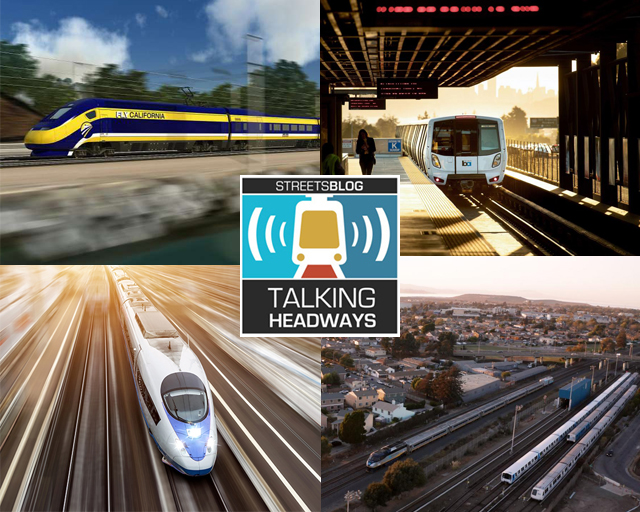This week we’re joined by Jannet Walker-Ford, National Transit and Rail Lead at WSP. We chat about high-speed rail around the country, the benefits of trade and research groups, escalating transit-project costs, and the transport-policy environment.
For those of you who get your news through your eyes and not your ears, there’s an edited transcript below the audio player. If you want a full, unedited transcript (with some typos!), click here. If you want to listen, here you go:
Jeff Wood: I obviously have a lot of opinions on it here in the Bay Area, but it also gets to that project-cost question. And I'm curious what your thoughts are on just general project. I know Eno is working on this, but project costs, they're kind of escalating and going up when in other countries we're seeing costs maybe not as expensive to do, maybe similar projects.
Jannet Walker-Ford: As it relates to the details that you just mentioned, I'm not as familiar with those. I think I pick up on Central Subway. I go there for a second because of the equity part of it, thinking about 2021 and the equity piece and that intent to serve the community. I think in terms of project costs, you know, we're seeing a variety of different types of project delivery methods and mechanisms in the United States. So I think there is some accuracy in terms of a different model, the different models that we see and the different, let's say labor costs and labor models here in the United States.
Wood: I find it interesting. Have you been following kind of what Eno has been doing? I know they had a conference last week about the project-cost stuff. I hope that at some point we'll get to talk with them in more detail about it, but I'm curious if you've been following along with the more general discussion about the project costs and how to lower them. There's a number of different organizations. It feels like they're trying to tackle this question.
Walker-Ford: Sure. I am on the Eno board, I'm proud to say, but I did not have a chance to participate in the great sessions that they had last week, but always a thought leader. And they do a terrific job. And after does the same thing about looking at different delivery, construction models, the project costs, which ones are more cost-effective, the procurement strategies and that sort of thing. So I think it's absolutely great news that we're looking at it from that lens that we've got great organizations like that that can kind of do better research and do some comparisons for the industry and then help us where need be help the industry be able to deliver. You're always striving to get to a better on-time delivery model and better and improve costs. It's decision-making, it's funding, it's timing, a whole host of things.
Wood: What do you think the larger construction companies, like WSP, what do you think their role is in trying to lower construction costs so we can get more projects?
Walker-Ford: That's a really great question, and there's many answers to that, but our role clearly is serving as that trusted advisor to our clients, which I think we do incredibly well. Being in early and identifying what the needs of the customer are with the region. What are those needs? Being able to help define those early on. We know that the longer you wait sometimes to deliver projects ... the costs go up. So being able to understand what those needs are early on, we do, I think an excellent job of being able to work closely with our customers, whether it be in a trusted-advisor capacity or working with them early on with our expertise and defining those requirements and being part of that design process.
We enjoy a relationship with our customers in doing just that. I think being able to get that right, as it relates to the procurement, the RFP, the types of procurement methods and methodologies that are used, we spend a lot of time with our clients talking about the pros and cons of the different methods that are available to them. So I think that where we can be most impactful is early on and then making sure that we've got the right team, the right team partners that are assembled to deliver the project and the ways that we really communicate and satisfy the customer throughout the entire project. It's important to ensure that we've got timing and decision-making, the funding is in place. It's all those things that go into being able to deliver a project at a timeline — it's having the right people at the table at the right time. The right buy-in, particularly of the community, is always a critical part of it. The more they can be upfront in the process, the better the results are.






